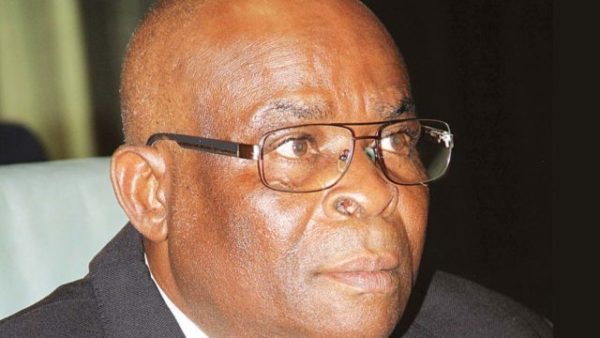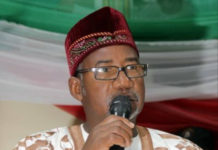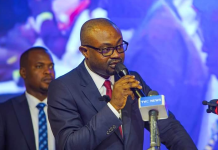Premium Times, an online news medium, has urged President Muhammadu Buhari to direct the withdrawal of the planned arraignment of Walter Onnoghen, Chief Justice of Nigeria, (CJN).
Mr Onnoghen is scheduled for arraignment before the Code of Conduct Tribunal on Monday, January 14, for allegedly omitting to declare his assets.
He is also accused of illegally operating five domiciliary accounts in various foreign currencies with Standard Chartered Bank since 2011.
Since the development was made public, Nigerians, including the opposition Peoples Democratic Party (PDP), are reading political meanings to the six-count charge against the CJN, particularly because of the role the judiciary will be playing as the nation elect its leaders next month.
Advising the All Progressive Congress (APC)-led administration to withdraw the charges against the jurist, the online news portal not only described the charges as illegal it added that there were unconstitutional. It cited some rulings of the judiciary to back up its claim.
“The most important reason why the CJN ought not to have been charged before the CCT, let alone being prepared for arraignment is because the charge is illegal and unconstitutional,” Premium Times said in a review report published on its website.
Premium Times argued that the head of the country’s judiciary cannot be prosecuted while in office until he is oust by the National Judicial Council which must take the decision if the judicial officer is found wanting after its investigation brought against any judge.
“The CJN is, in the eye of the law, presumed innocent, until he is proved and found guilty. Being charged at all, however, implicates his right to fair hearing, as many will start arguing that he should step down from office. In other words, once charged and arraigned, the likelihood is that calls will be made for him to vacate office, albeit temporarily, for integrity reasons. If, in the end, he is found not guilty, irreparable damage would have been done to his reputation and the integrity of the Judiciary.
“In NGANJIWA V. F. R.N, 2018, 4NWLR, Part 1609, Page 301, at page 339, para. G-page 352, para. E, the Court of Appeal (Lagos Division) held that no serving judge in Nigeria can be investigated or tried in a court of law, without first being removed from the Bench. A petition first must have been written against the judge, and he must have faced an administrative disciplinary process of the NJC for an alleged violation of the Code of Conduct for Judicial Officers, found guilty, recommended, by the NJC, for removal from office, and removed from office by the Executive arm of government. In short, only dismissed judicial officers can be investigated and prosecuted by the anti-corruption agencies. That decision is being appealed by the EFCC at the Supreme Court.
“The position we took when that decision was handed down was that the judgment had no constitutional basis. Judges ( unlike the President, Vice President, Governor and Deputy Governor) enjoy no immunity from investigation, arrest and prosecution, while they are in service. They do not enjoy executive immunity and are not covered by Section 308 of the Constitution. The Court, therefore, cannot grant to the judiciary an immunity the Constitution does not vest in it. The concept of judicial immunity only covers the exercise of the judicial powers of a judge and his jurisdiction. No civil action or criminal action may be taken against him in respect of his judicial work or decisions, but he is not shielded from criminal culpability if he commits a criminal offence while he is in office.
“The NGANJIWA Decision, however, remains the law in Nigeria today. Nigeria is a constitutional democracy under the rule of law. By virtue of Section 287 of the Constitution of the Federal Republic of Nigeria, 1999, as amended, the judgment is binding on all authorities and persons in Nigeria, including the Executive Branch of Government at the “Federal” level, the Office of the Attorney-General of the Federation, the CCB and CCT.
“We support the fight against corruption in the public sector and in the Judiciary in particular. But this fight must be done in scrupulous conformity with the rule of law.
“In the light of the foregoing, we call on the President of Nigeria to direct that the charges filed against the CJN be withdrawn forthwith for its incompetence, even as the Administration continues to explore other legitimate and constitutional means to continue its fight against corrupt practices in our public life.
The allegations against the CJN may be grave, but justice cannot be served by resorting to patent illegalities,” the online paper said.







